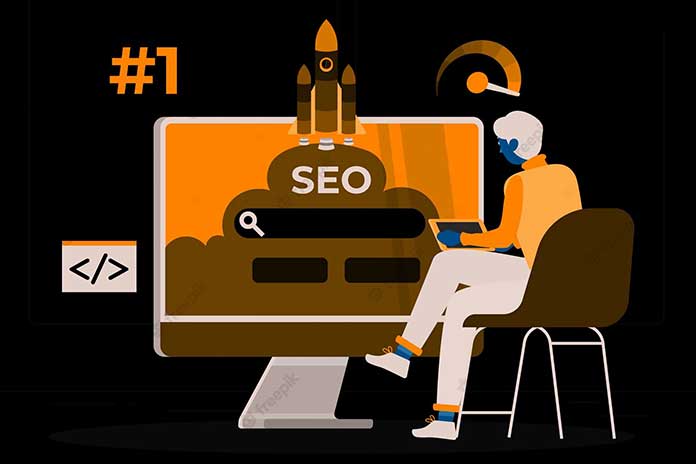I have a basic knowledge of how search engines work to help optimize a website, which can be improved with some tools, such as those offered by Wix.
Anyone with a website cannot fail to have heard of SEO (search engine optimization), the site’s optimization for search engines. Putting SEO tips into practice is essential to give visibility to your website.
Currently, all the major CMS are equipped with an internal optimization of the contents and the site’s structure to favor indexing on search engines. Wix’s SEO tools, for example, offer a simple free platform for setting up your site’s SEO.
What Is SEO?
SEO is the set of procedures that help a website or content have greater prominence on search engines such as Google.
The main difference between SEO and PPC (pay-per-click, paid visibility) is that SEO is based on “organic” positioning, not paid. In a nutshell, optimizing a site for search engines means optimizing online content so that the engine finds it valuable and well-written enough to show it among the first available results.
For example, when someone searches for “tiramisu” on Google, they are probably looking for a recipe, the list of ingredients and instructions for making it. Whoever has written an article on tiramisu wants people to find and read that article, so it must be ranked among the top sites with the keyword “tiramisu”. It’s not easy, but you can do it with SEO techniques.
The most used search engine of all is Google. To understand how to be among the top positions, you need to know how Google works.
Also Read: The Best Tools For SEO On A Website
How Does A Search Engine Work?
It is possible to start by analyzing how a search engine like Google works.
When you search for something, an algorithm is put into operation, which, based on its calculations, will show what it believes to be “the best results” for the individual searching. Google scans billions of pages, looking for results valid for a specific search.
You know more or less the general functioning of Google algorithms, and you have an idea of what is considered most relevant and essential for the search engine.
Relevance
If you search for “chocolate biscuit recipe”, Google will search for pages containing these keywords; however, this is not enough, as the search for “chocolate biscuits” returns over 16 million results on Google. Which will take precedence?
Authority
Authority for Google means understanding how accurate and reliable the content found is.
But how does Google understand this? Google looks at how many links are directed to that specific page: the more links there are, the greater the authority of that content.
Utility
Some contents can be relevant and authoritarian but not valuable for the reader. Google gives priority to helpful content. However, there is a distinction between “high-quality content” and “useful content”.
For example, suppose you look for the definition of “black holes”. The difference is that the first content will be a technical result and perhaps difficult to understand as it is written in the expert language. In contrast, the second will be more beneficial to the reader as it is easier to understand.
Google measures usefulness based on parameters that derive from user behavior. The ranking will be affected based on how a user interacts with the results he sees.
For example, suppose a user who searches for the keyword “chocolate biscuits” finds well-written and valuable content. In that case, Google will measure the time spent on the page and any interactions with more content on the site. All of this will be interpreted by Google as a positive thing and give this page a better ranking.
Organization Of Contents
A page written in an orderly and organized way, perhaps divided into well-structured paragraphs, will have further points in favor of Google.
Difference Between Organic Results And Paid Results
At this point, it is possible to understand the difference between SEO and PPC work.
Organic results
Organic results are 100% natural results obtained based on the merit of their contents. It is not possible to pay Google and other search engines to be able to appear in the first positions.
In addition to the parameters seen above, Google processes hundreds of other parameters to decide the organic positioning of a page, and this is by far the most reliable and authoritative result that can be given on given content.
However, it should be borne in mind that doing SEO requires costs, however low they can sometimes be.
Paid Results (PPC)
Paid results are advertisements appearing in the first positions above organic results.
These results are entirely independent of the organic ones. They are calculated based on how much the advertiser intends to pay to get a visitor from a particular search (also known as pay-per-click advertising ).
Optimizing a page for SEO takes longer than for PPC, but the results will be usable over a much extended period.
Why Do SEO?
After reading some information on how SEO works, you can now better understand why it is essential to have a basic knowledge of SEO techniques; summarizing the reasons:
- To be able to obtain a better positioning in the results of search engines;
- To get more visitors to your site;
- Because it helps build a solid and reliable brand image;
- Because it offers more excellent long-term results.
Also Read: SEO Plugin Guide For WordPress

